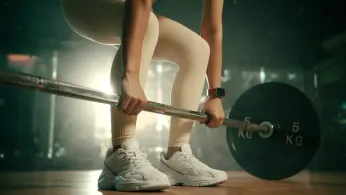
4 hours ago
Minnesota Supreme Court Declares USA Powerlifting’s Ban on Transgender Women Discriminatory
READ TIME: 3 MIN.
The Minnesota Supreme Court issued a historic decision on October 22, 2025, declaring that USA Powerlifting’s policy banning transgender women from competition violated the Minnesota Human Rights Act (MHRA) by constituting unlawful discrimination. The ruling was handed down in the closely watched case of Cooper v. USA Powerlifting, brought by transgender powerlifter JayCee Cooper with the support of legal advocacy organizations including Gender Justice, Nichols Kaster PLLP, Schlesinger PLLC, and Premo Frank .
The court’s unanimous decision sends a powerful message that sporting organizations, as public accommodations, cannot adopt policies that categorically exclude transgender people from participation. This case marks a significant moment not only for athletics, but for the broader fight against discrimination in public life .
JayCee Cooper, a transgender woman and competitive powerlifter, filed a complaint in 2019 after being denied entry to USA Powerlifting events solely because she is transgender. USA Powerlifting’s policy at the time explicitly prohibited transgender women from competing in the women’s division, a stance the organization claimed was necessary for “fairness” in the sport .
Cooper’s complaint argued that this policy constituted discrimination based on gender identity, in violation of the MHRA, which prohibits discrimination in public accommodations—places open to the public, including sports organizations and events . The case advanced through the state court system, drawing national attention and support from LGBTQ+ advocates, civil rights organizations, and athletes across the country.
In its decision, the Minnesota Supreme Court clarified that the precedent set by the earlier Goins v. West Group case applied only to employment, not to broader public accommodations such as sports. The court held that USA Powerlifting’s categorical exclusion of transgender women violated the MHRA and could not be justified by claims of competitive fairness alone .
Legal experts and advocates hailed the ruling as a decisive affirmation of transgender people’s rights in Minnesota and a model for other states. Jess Braverman, Legal Director at Gender Justice, emphasized: “This ruling sends a clear and powerful message: transgender people have a right to enjoy public spaces in Minnesota like sporting events, restaurants, and movie theaters, free from targeted discrimination” .
The decision’s implications extend far beyond the world of competitive powerlifting. By confirming that the MHRA covers public accommodations, including sports organizations, the court reinforced that all Minnesotans—regardless of gender identity—deserve equal access and opportunities in public life. As anti-transgender legislation and legal battles continue in other states, the Minnesota Supreme Court’s ruling stands as a beacon for fairness and inclusion .
LGBTQ+ organizations and athletes celebrated the decision, calling it a vital step forward for the rights and visibility of transgender people in sports. Advocates underscored that transgender athletes, like all competitors, deserve the chance to participate and thrive without facing systemic barriers or stigma.
While the ruling is a significant victory, advocates also cautioned that ongoing vigilance is needed. Braverman noted, “Across the country, anti-trans legislation and legal battles continue to threaten the rights and freedom of trans people. We will continue to fight for a world where everyone can compete, belong, and thrive without fear of discrimination” .
National organizations, including the Human Rights Campaign and the American Civil Liberties Union, praised the Minnesota Supreme Court’s decision for its clear affirmation of civil rights and its potential to influence similar cases nationwide. Legal analysts observed that the court’s reasoning could serve as persuasive authority in future challenges to exclusionary sports policies in other jurisdictions.
USA Powerlifting has not yet publicly announced whether it will appeal the decision or revise its policies in response to the ruling. The court’s decision, however, makes clear that compliance with state anti-discrimination laws is not optional for sports organizations operating as public accommodations .
The ruling may also prompt other athletic organizations at the state and national levels to review and update their own policies regarding transgender participation. Experts predict that this case will have a ripple effect, encouraging greater inclusivity in sports and reinforcing the principle that competitive fairness cannot come at the expense of fundamental human rights .
The Minnesota Supreme Court’s decision in Cooper v. USA Powerlifting marks a significant milestone in the ongoing struggle for LGBTQ+ equality and the recognition of transgender rights in public spaces. By ruling that categorical bans on transgender athletes are a form of unlawful discrimination, the court reaffirmed the state’s commitment to fairness, dignity, and equal opportunity for all Minnesotans. As advocates and policymakers across the country grapple with questions of inclusion, Minnesota’s example stands as a testament to the enduring power of legal protections and the importance of affirming the rights of every individual to participate fully in public life.






